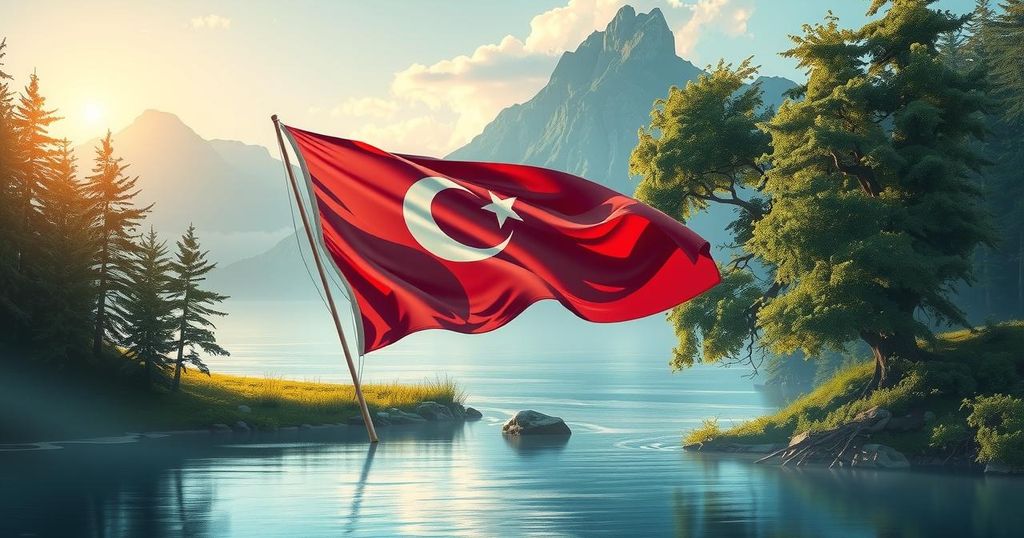On February 4, 2025, unrest in Iran intensified as the regime’s violent attacks against the Baluch community led to fierce retaliations from youth. Economic dissatisfaction and warnings of potential uprisings reflect deep societal rifts. Reports of Iran developing North Korean-style nuclear missiles raise international alarm, and women’s leadership in nationwide protests exemplifies a significant social movement. Concerns about the medical workforce and global protests against political prisoners further underscore the regime’s vulnerabilities in light of escalating unrest.
On February 4, 2025, the situation in Iran escalated as the regime’s violent actions against the Baluch community elicited strong reactions from the youth. The Iranian authorities executed young Baluch men and demolished homes in impoverished neighborhoods, provoking fiery responses from the youth who targeted security forces and symbols of the regime across various cities. This unrest reflects the mounting frustration of the Iranian population under oppressive conditions.
Naser Makarem Shirazi, a cleric and member of the Assembly of Experts, has warned that growing dissatisfaction among the Iranian populace could trigger uprisings. The country faces severe economic and social crises, which are driving individuals to an unbearable limit of suffering. This warning underscores the widening divide between the regime and its citizens, with significant implications for the government’s stability.
Reports indicate that Iran is developing nuclear missiles modeled after North Korean designs, raising alarm among international observers. The National Council of Resistance of Iran (NCRI) claims that the regime is accelerating its nuclear ambitions, secretly constructing facilities that aim to produce warheads capable of reaching European targets. Officials from the NCRI express concerns regarding Tehran’s intent to isolate Iran from international scrutiny while advancing its weapons program.
February marks a pivotal moment in contemporary Iranian history, with the month witnessing the overthrow of the last monarch in 1979. This event was shaped by a diverse coalition of activists, including both Islamic theocrats and proponents of democracy. The historical significance of this month emphasizes the ongoing struggle for genuine democratic governance in Iran, which remains crucial today.
The Iranian mining sector is facing a severe crisis, with approximately 65% of mines shut down due to a multitude of factors such as inadequate investment, environmental issues, and legal conflicts. This situation poses significant economic challenges, as the mining industry has substantial potential for national growth. Revitalizing this sector is essential to enhance Iran’s financial stability and future prospects.
January 2025 stood witness to a remarkable proliferation of protests, prominently led by women seeking justice and equality. Demonstrations occurred across multiple cities, including major urban centers and smaller towns, emphasizing the relentless push for societal change. This unprecedented involvement highlights women’s resilience in confronting oppressive conditions and their role in advocating for rights and reforms.
Concerns regarding the medical workforce in Iran are mounting, with experts predicting a potential need to recruit foreign doctors due to the emigration and burnout of current healthcare professionals. The Iranian regime’s Medical Organization reported significant vacancies in residency programs, indicating a decline in interest among prospective doctors. The mental health crisis among healthcare workers also raises alarms, as several have taken their own lives under pressure from their demanding roles.
Supporters of the People’s Mojahedin Organization of Iran (PMOI/MEK) are uniting globally to protest against the death sentences imposed on political prisoners, particularly drawing attention to the cases of Behrouz Ehsani and Mehdi Hassani. Rallies were held in Vancouver, Malmö, and Copenhagen, highlighting calls for the immediate release of political prisoners and accountability for the regime’s actions. The urgency of these demonstrations emphasizes the international community’s commitment to advocating for Iranian political prisoners, culminating with broader calls for human rights and democratic governance.
The recent violence against the Baluch community in Iran catalyzed significant unrest among the youth, marking a turning point in the ongoing civil discontent against the regime. Concurrently, prominent members within the Iranian clerical establishment express concern about potential uprisings due to growing public dissatisfaction with the government’s failing economic and social policies. Amidst these pressures, Iran’s secretive advancements in nuclear missile capabilities heighten global tensions, evoking critical alarm from international human rights advocates. Moreover, the historical context provided by the 1979 revolution emphasizes the continuing struggle for democracy against a backdrop of repression, while the crisis in the mining sector and healthcare system reveals deep-seated economic troubles that compound societal frustrations. The active role of women in protests signifies a significant social shift toward gender equality and rights advocacy, while the international mobilization on behalf of political prisoners underscores the urgent need for global solidarity in the face of authoritarianism.
In summary, the increasing unrest within Iran highlights not only the profound grievances of the populace but also reflects critical societal issues that threaten the regime’s stability. The warnings from clerics about potential uprisings underscore the regime’s fragile hold on power amid widespread discontent and a struggling economy. The global mobilization against the Iranian government’s violent repression of dissidents indicates a growing demand for accountability and reform. Overall, the pathways toward democratic governance remain fraught with challenges, necessitating both domestic efforts and international support for lasting change in Iran.
Original Source: www.ncr-iran.org




